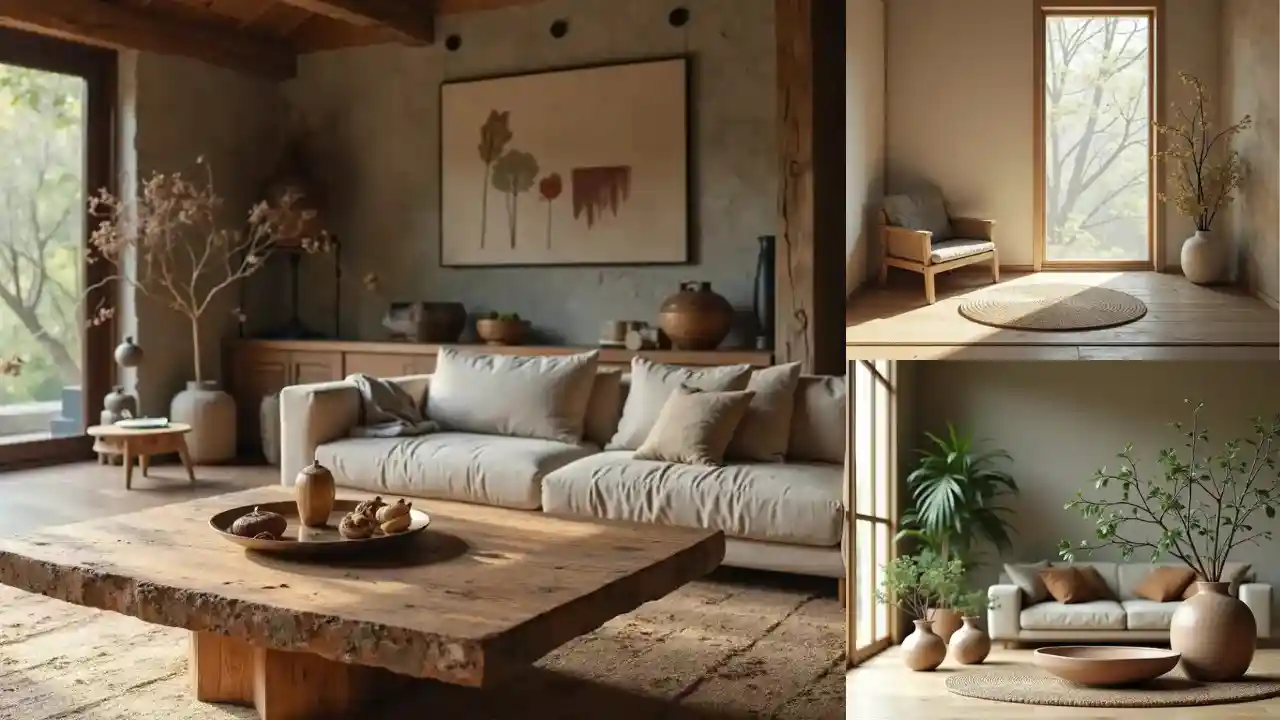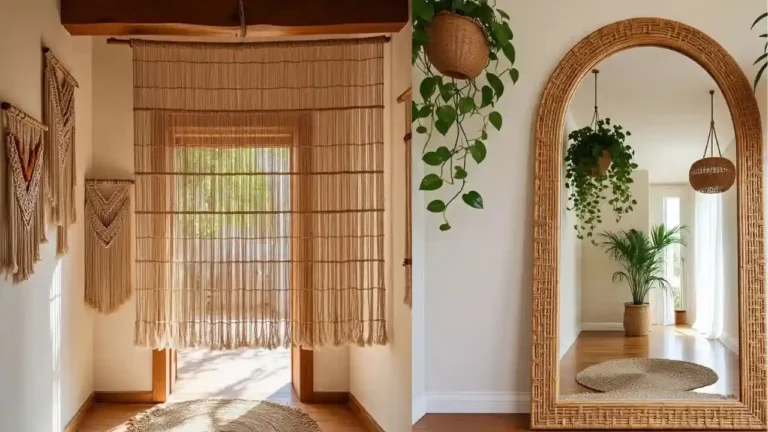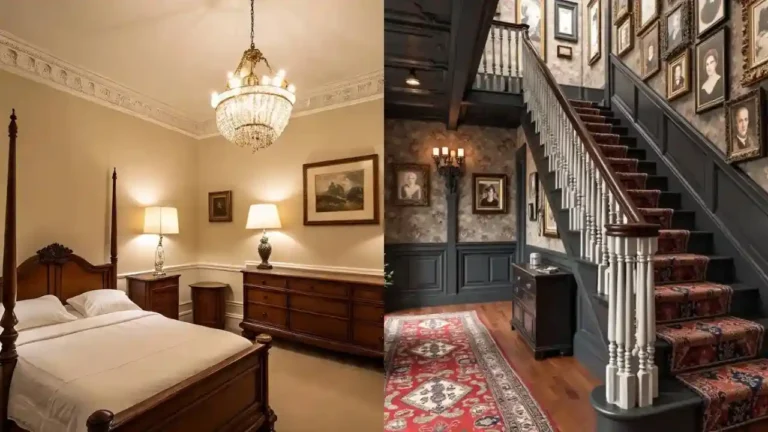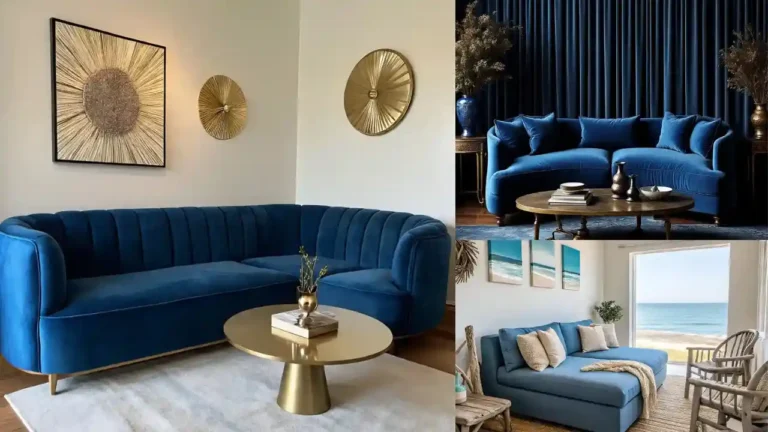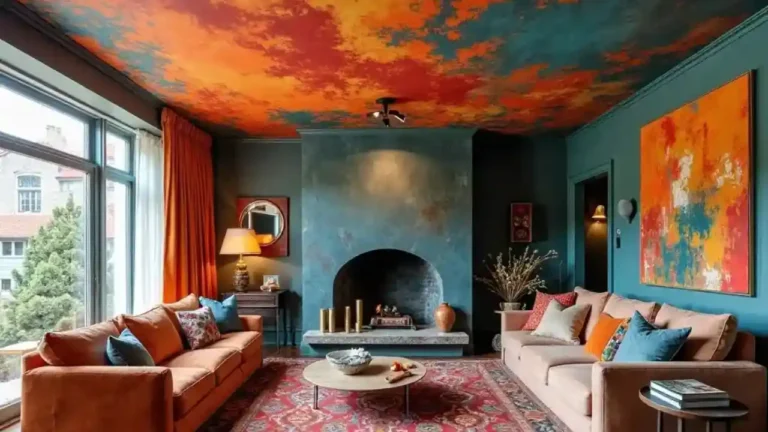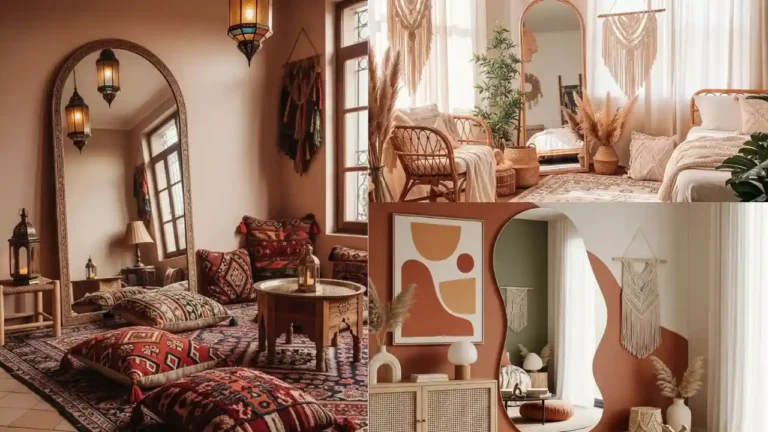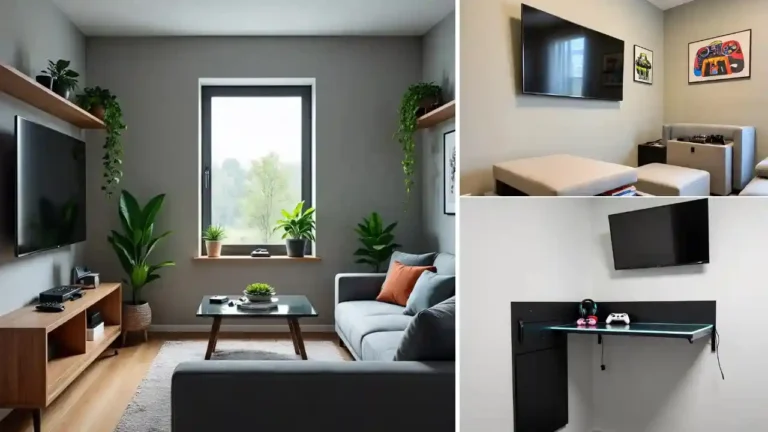20 Wabi-Sabi Living Room Ideas: Natural Beauty & Imperfect Harmony
Wabi-sabi is a Japanese design philosophy that celebrates the beauty found in imperfection, impermanence, and natural aging. It’s about embracing what is raw, honest, and soulful; creating spaces that are grounded, lived-in, and emotionally comforting. In a world obsessed with perfection, Wabi-sabi living room ideas offer a much-needed return to authenticity and quiet beauty.
If you’re craving calm, connection, and earthy design, these 20 Wabi-Sabi living room ideas by Nova Home Ideas will help you build a living room that truly feels like home.
1. Embrace Patina: Aged Wood and Weathered Finishes Tell a Story
Opt for furniture and decor with visible grain, knots, and wear; these imperfections are marks of life. A timeworn oak coffee table or reclaimed wood console adds soul to your space. Wabi-sabi sees age as beauty, not a flaw.
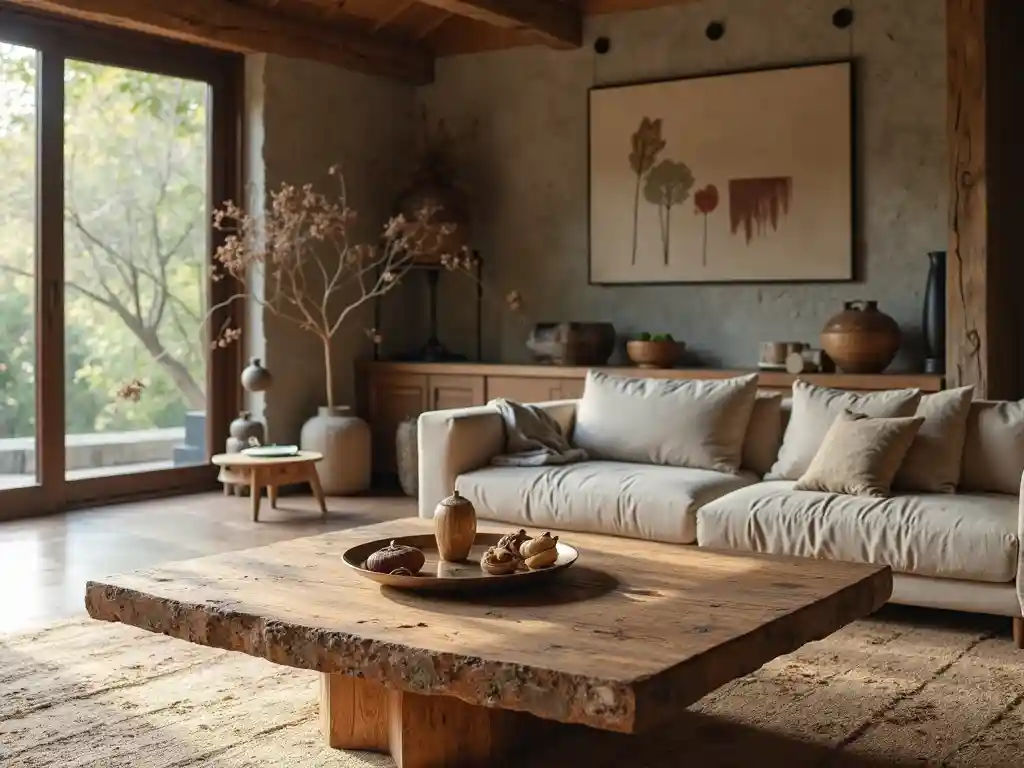
2. Incorporate Handmade Pottery With Organic Shapes
Vases, bowls, and mugs with hand-formed curves, uneven glazes, and visible textures embody the wabi-sabi spirit. Their rawness connects us to the artisan and the earth. Display them minimally to allow their natural beauty to shine.
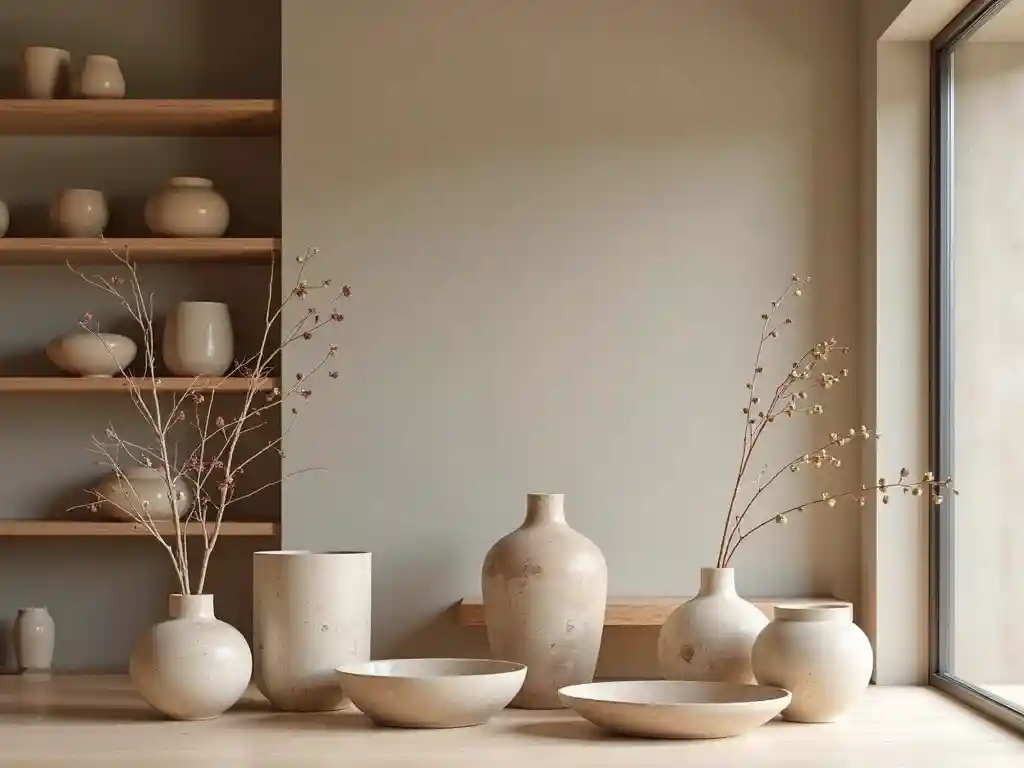
3. Choose Low, Unstructured Furniture With Natural Materials
Sofas and chairs in linen, cotton, or raw leather contribute to a grounded and relaxed aesthetic. Avoid overly symmetrical or overly polished pieces; opt instead for slouchy silhouettes and neutral tones. It’s about quiet comfort, not showroom perfection.
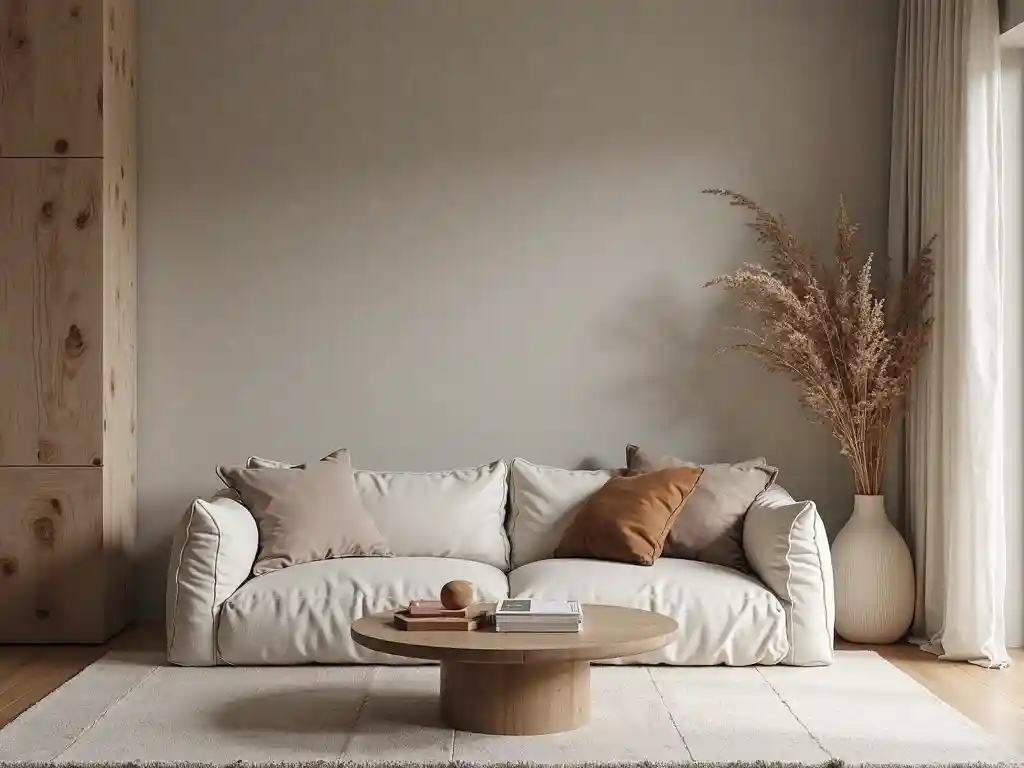
4. Use Candlelight and Soft Glows to Create Intimate Lighting
Harsh lighting has no place in a Wabi-sabi space. Layer table lamps, paper lanterns, and candles for a gentle, flickering ambiance. Lighting should be soft, imperfect, and emotionally warm.
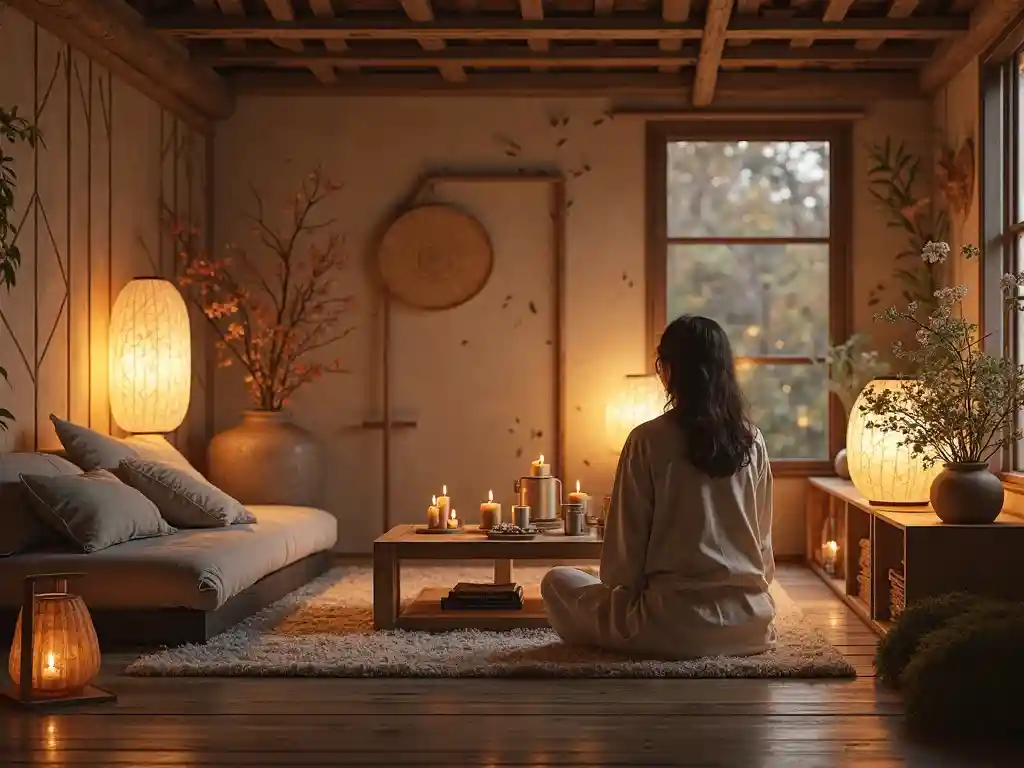
5. Add Textures With Natural Fibers Like Linen, Wool, and Jute
Linen drapes, wool throws, and jute rugs bring tactile warmth and rustic depth. These unprocessed materials soften the space while enhancing its connection to nature. Imperfect texture is what brings the soul into the room.
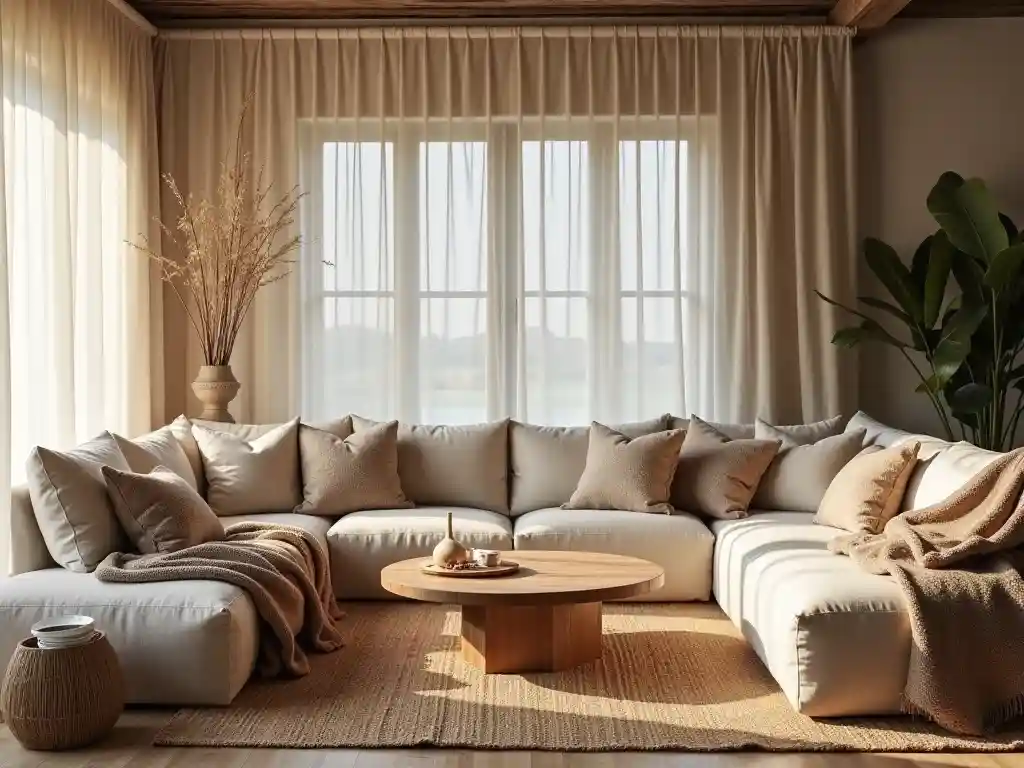
6. Display Fewer Objects – But Make Every One Meaningful
Wabi-sabi spaces are intentionally curated. Instead of cluttering shelves, display a single ceramic sculpture, a favorite book, or a hand-thrown bowl. The emptiness between objects is just as important as the objects themselves.
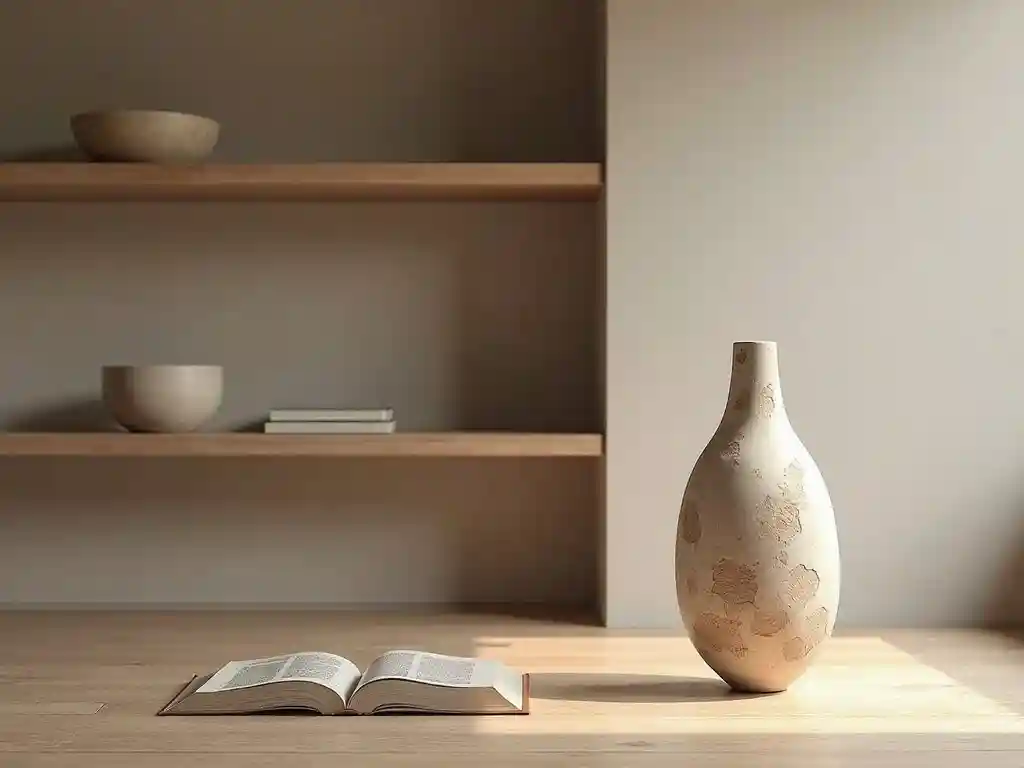
7. Introduce Organic Greenery in an Un-styled Way
Instead of perfectly manicured plants, choose wild, asymmetrical arrangements or dried branches in simple clay vases. Let the leaves droop, let the arrangement feel found, not forced. Wabi-sabi celebrates nature in its most honest form.
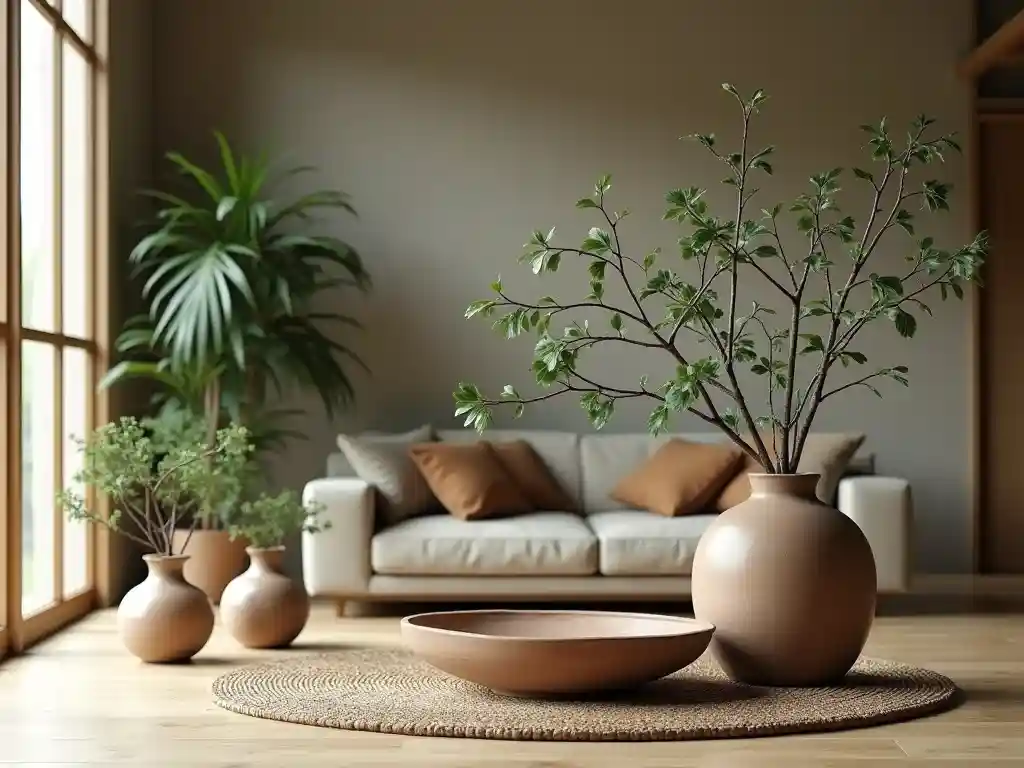
8. Lean Into Asymmetry in Decor and Furniture Layout
Wabi-sabi finds beauty in imbalance. Place your sofa slightly off-center, or hang artwork lower than expected. This non-uniformity creates intrigue and harmony without trying too hard.
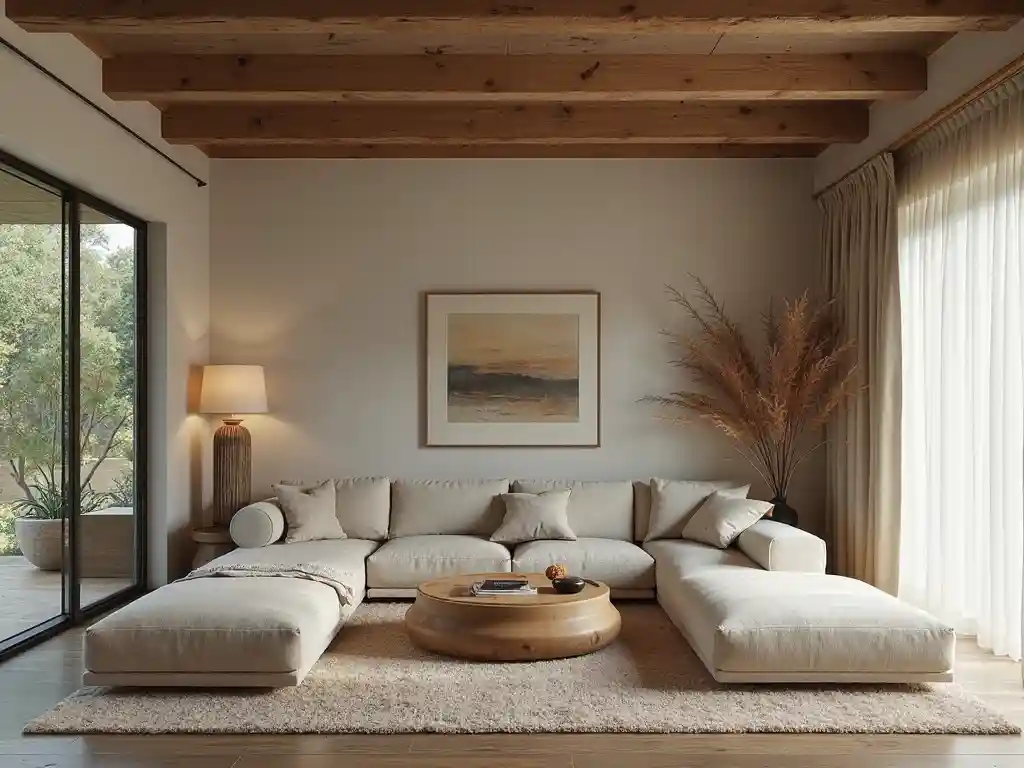
9. Use Neutral, Muted Colors That Reflect Nature
Soft earth tones like clay, sand, ash, and moss echo the natural world. Avoid stark contrasts; Wabi-sabi rooms flow in gradients, not interruptions. These hues promote stillness and grounding.
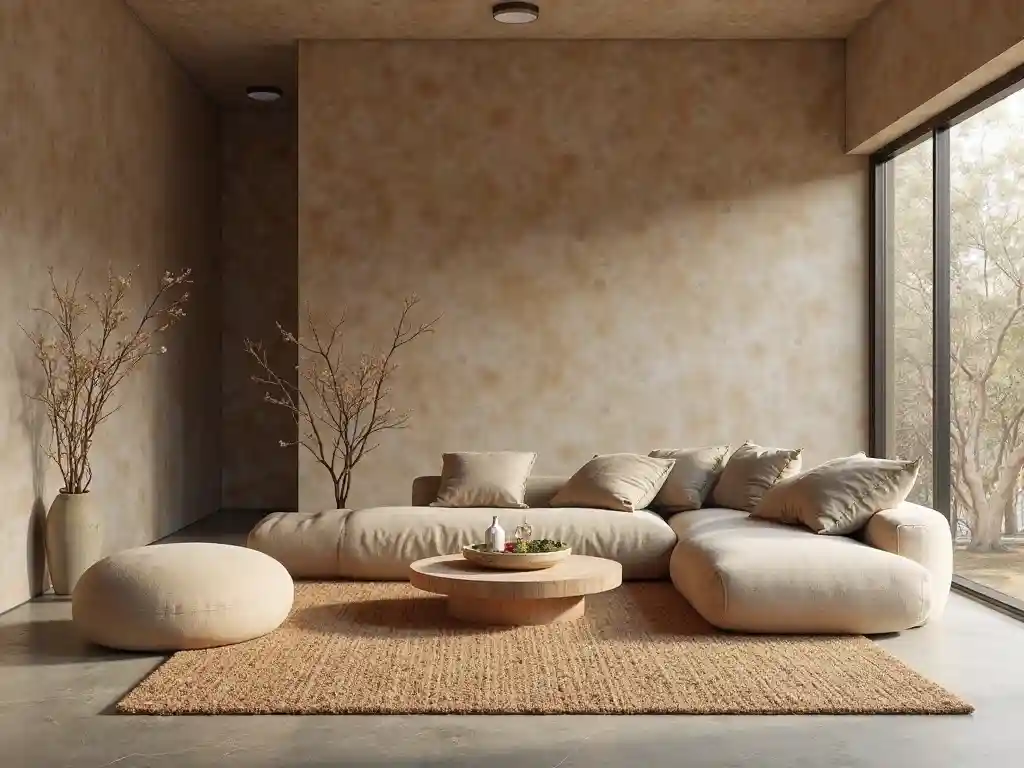
10. Let Time Show: Cracks, Fading, and Wear Are Welcome
Don’t be afraid to showcase cracked plaster, peeling paint, or threadbare rugs. These features tell the story of use, time, and transformation. Wabi-sabi rooms evolve with life, not against it.
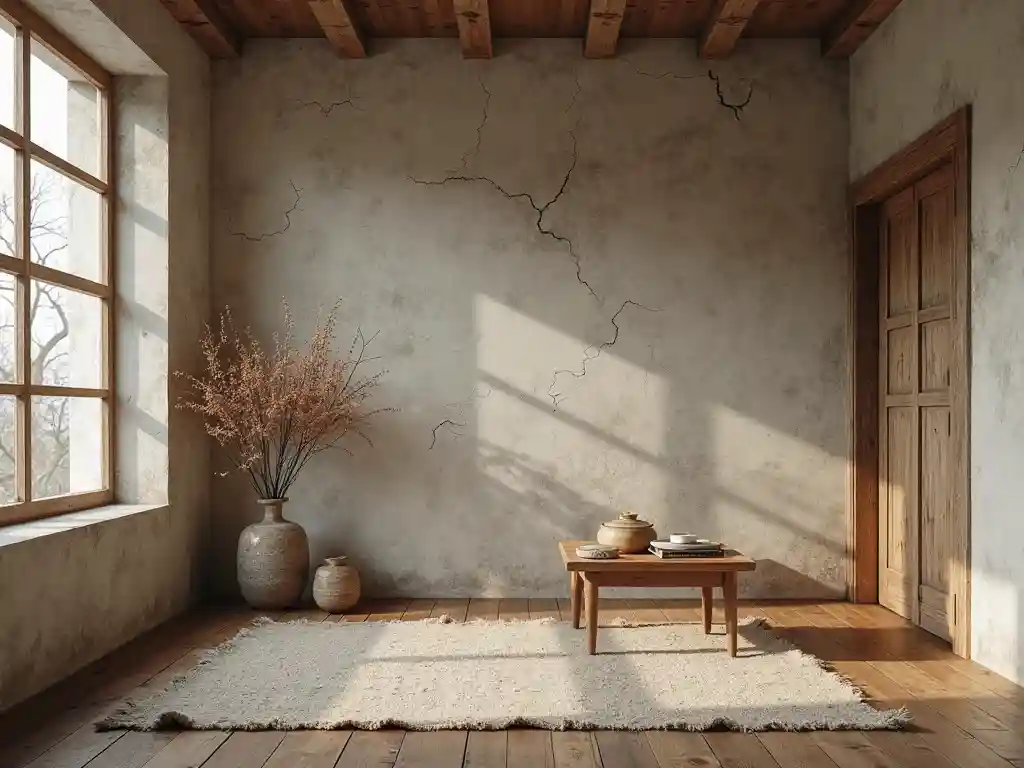
11. Style With Intention, Not Perfection
A book with a creased spine, a table with tea stains, or a mismatched chair can be the highlight of a Wabi-sabi room. These aren’t flaws, they’re signs of life lived fully. Let them stay.

12. Include Handcrafted or Vintage Mirrors With Irregular Frames
Choose mirrors with imperfect shapes, tarnished edges, or vintage patina. These reflective pieces create dimension without dominating the room. Their quiet elegance fits beautifully into the Wabi-sabi language.
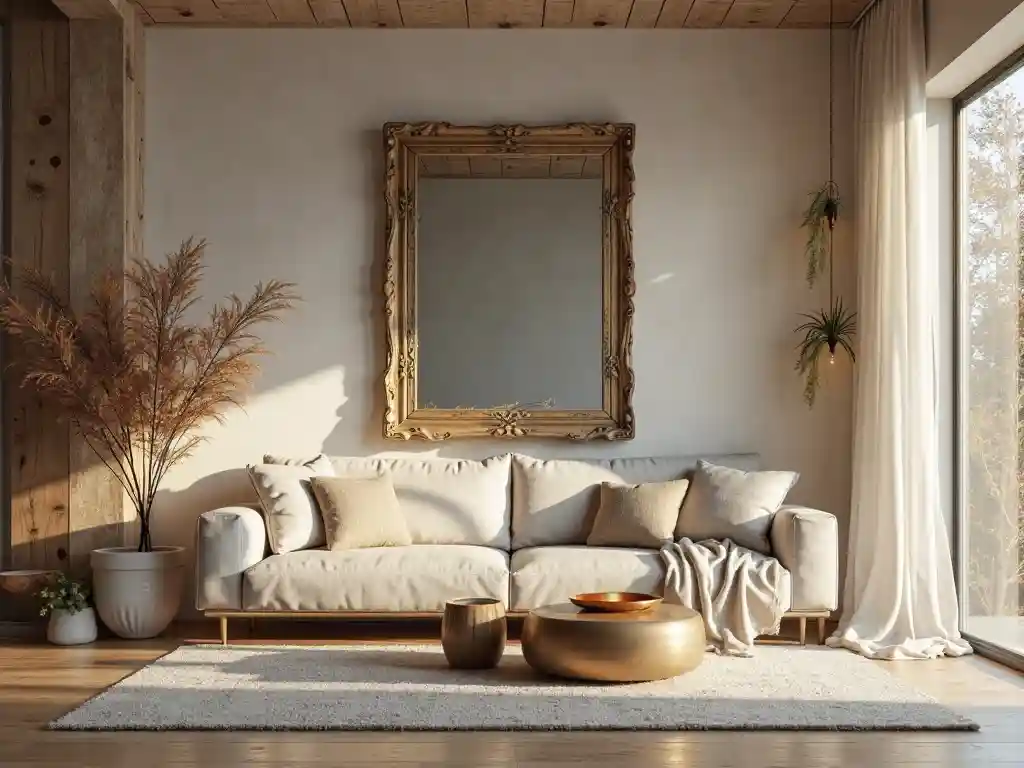
13. Highlight Raw Architectural Elements Like Exposed Wood or Stone
Don’t hide beams, uneven walls, or natural textures. Let raw wood, concrete, or stone shine through, even if unfinished. These untouched details reinforce the authenticity of your space.
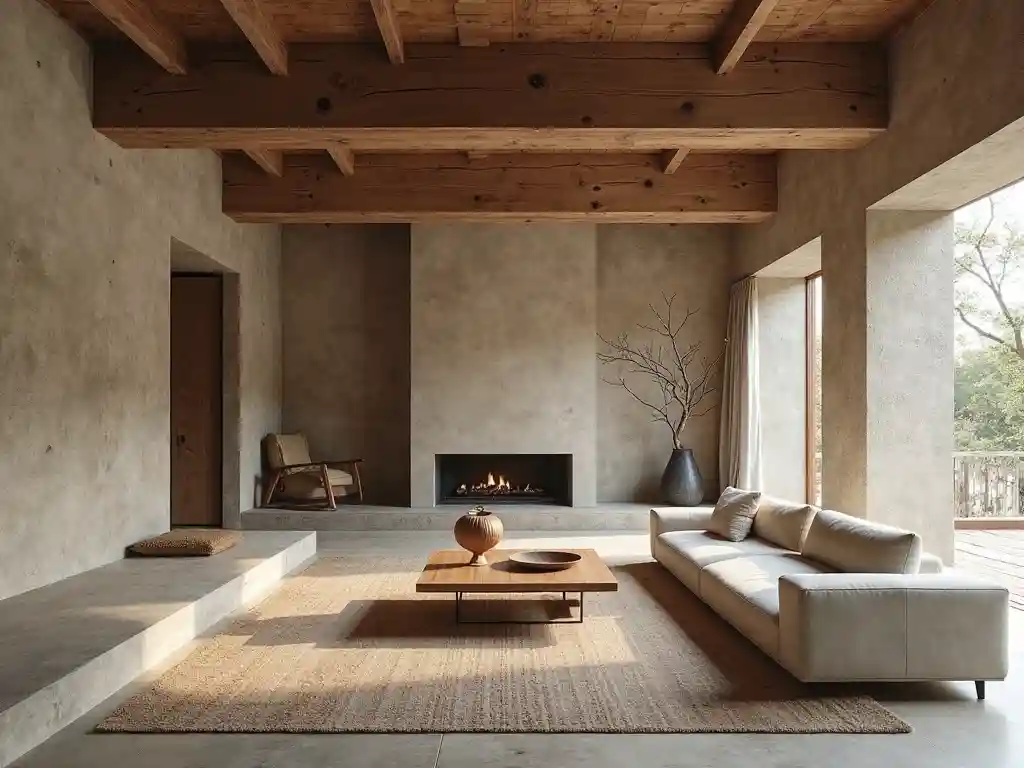
14. Create a Quiet Nook for Reflection or Stillnes
A Wabi-sabi living room isn’t just beautiful; it’s peaceful. Set aside a corner with a low chair, a woven mat, and natural light. This space invites slow moments, tea rituals, or simply resting.
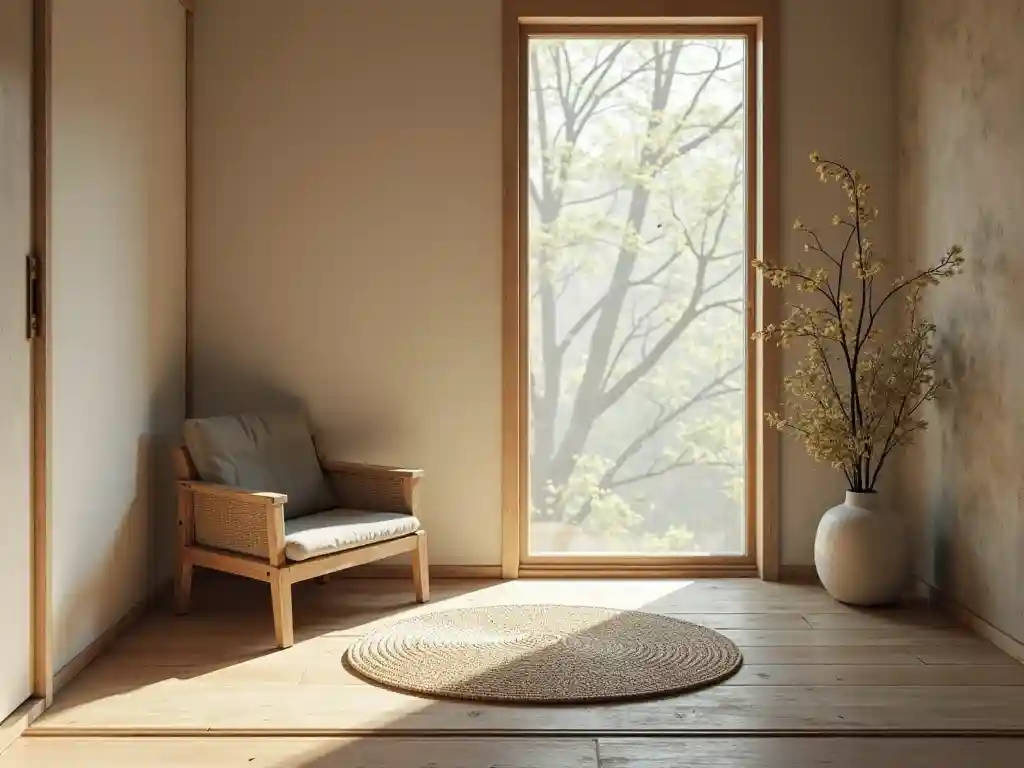
15. Layer Soft, Worn-In Rugs for Warmth and Texture
Rugs don’t need to be perfect or new. Vintage kilims, faded Persians, or even threadbare wool runners offer soul and history. Layering them adds character without clutter.
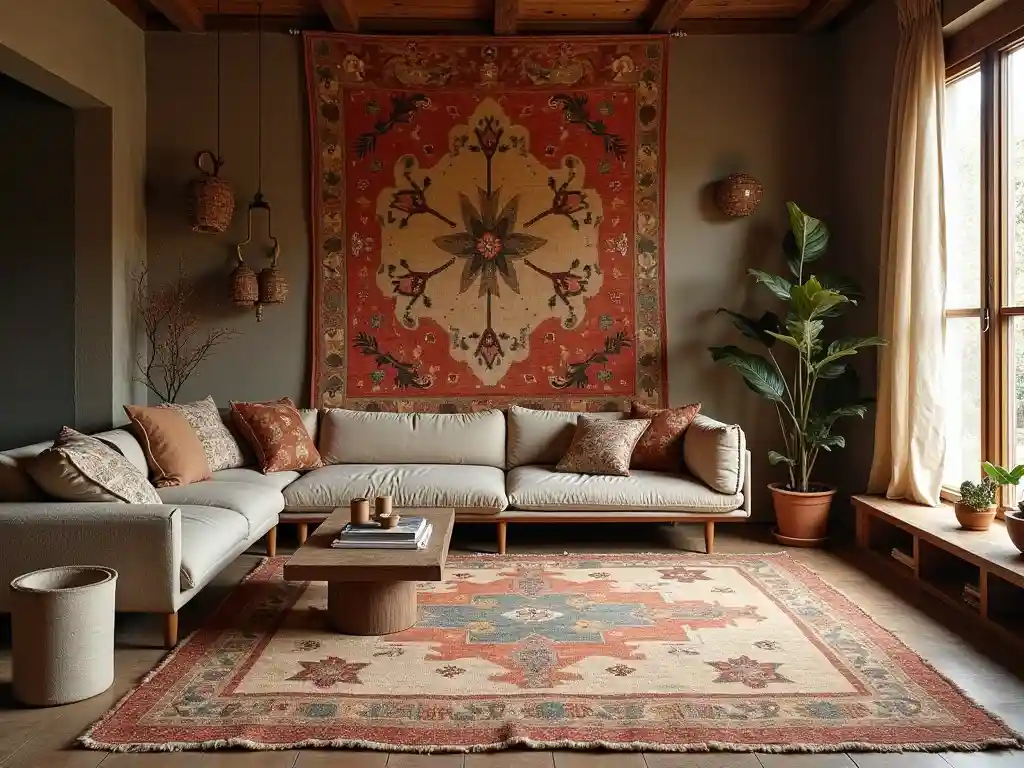
16. Display Dried Flowers or Branches Instead of Fresh Bouquets
Dried eucalyptus, thistle, or bare twigs arranged in raw pottery create moody, minimalist displays. These elements feel more enduring than fresh blooms, and they age gracefully over time.
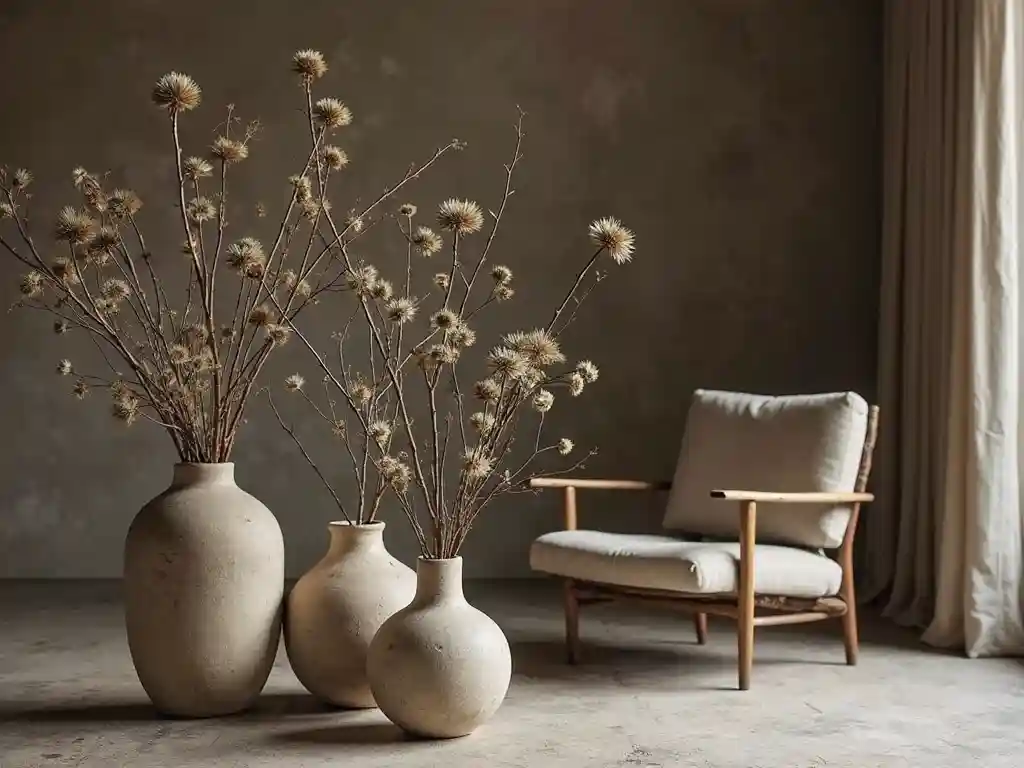
17. Allow Negative Space to Be Part of the Design
Don’t feel the need to fill every wall or surface. In Wabi-sabi design, empty space is powerful; it allows room to breathe. This visual simplicity creates calm and focus.
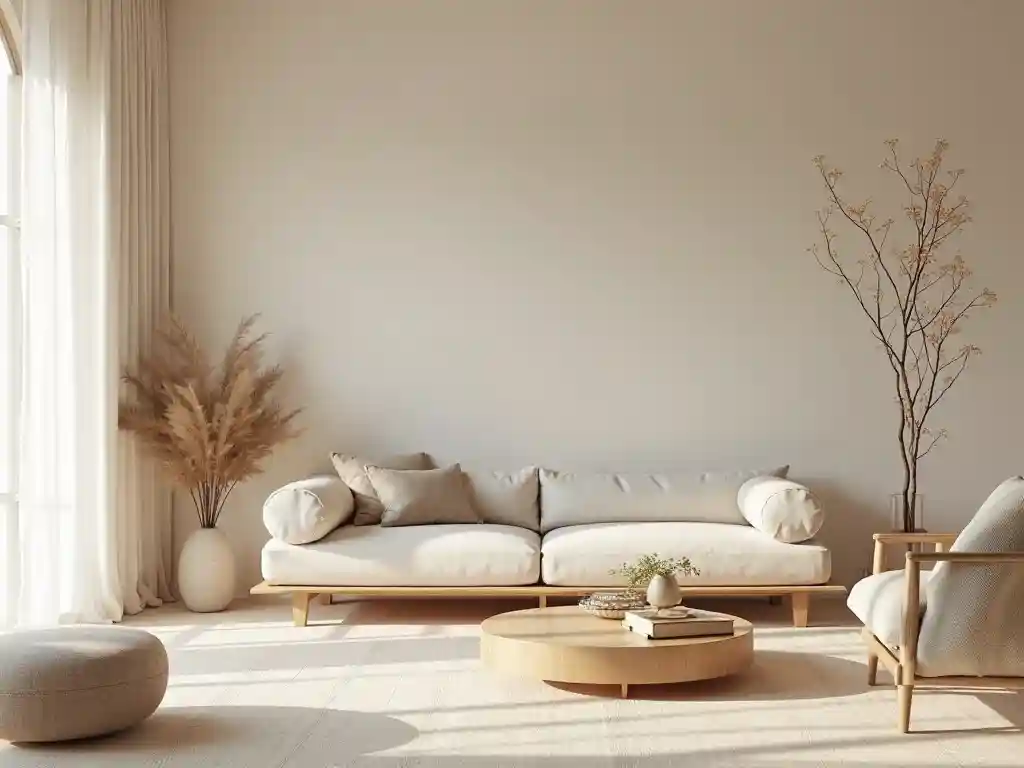
18. Use Storage That Blends Seamlessly With the Room
Opt for wooden trunks, linen baskets, or vintage cabinets with patina. Storage should be quiet and harmonious, not flashy. It hides clutter while blending into the natural flow of the room.
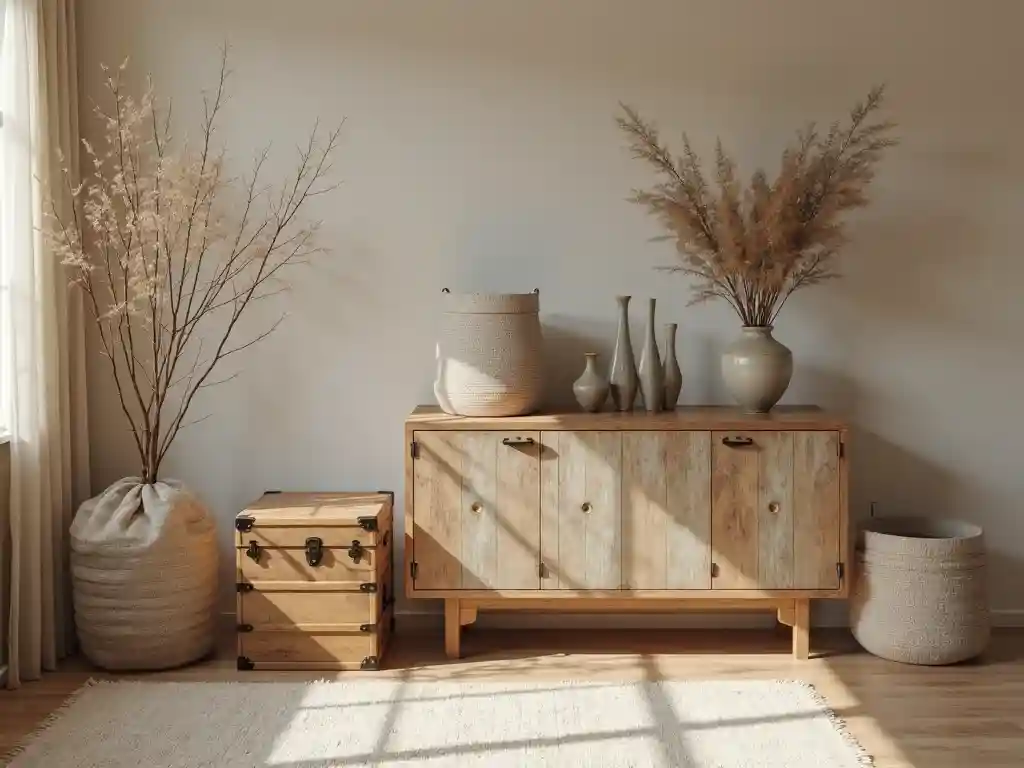
19. Incorporate Japanese or Zen-Inspired Touches Subtly
A single shoji screen, a tatami mat, or a calligraphy scroll can add thoughtful nods to Japanese heritage. These pieces should feel integrated, not decorative or performative. Respect and restraint are key.
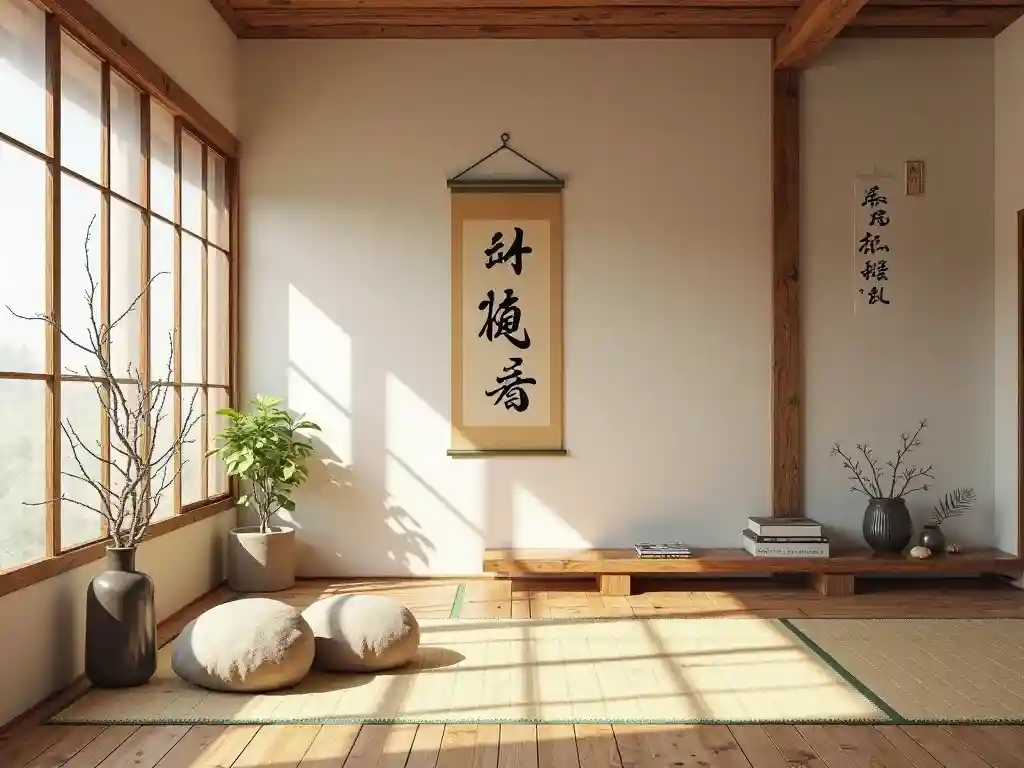
20. Let the Room Evolve Over Time – Wabi-Sabi Is Never Finished
A true Wabi-sabi space grows with its inhabitants. Let your living room age gracefully, adding pieces slowly and thoughtfully. It should reflect your life’s rhythm, not a static vision of perfection.
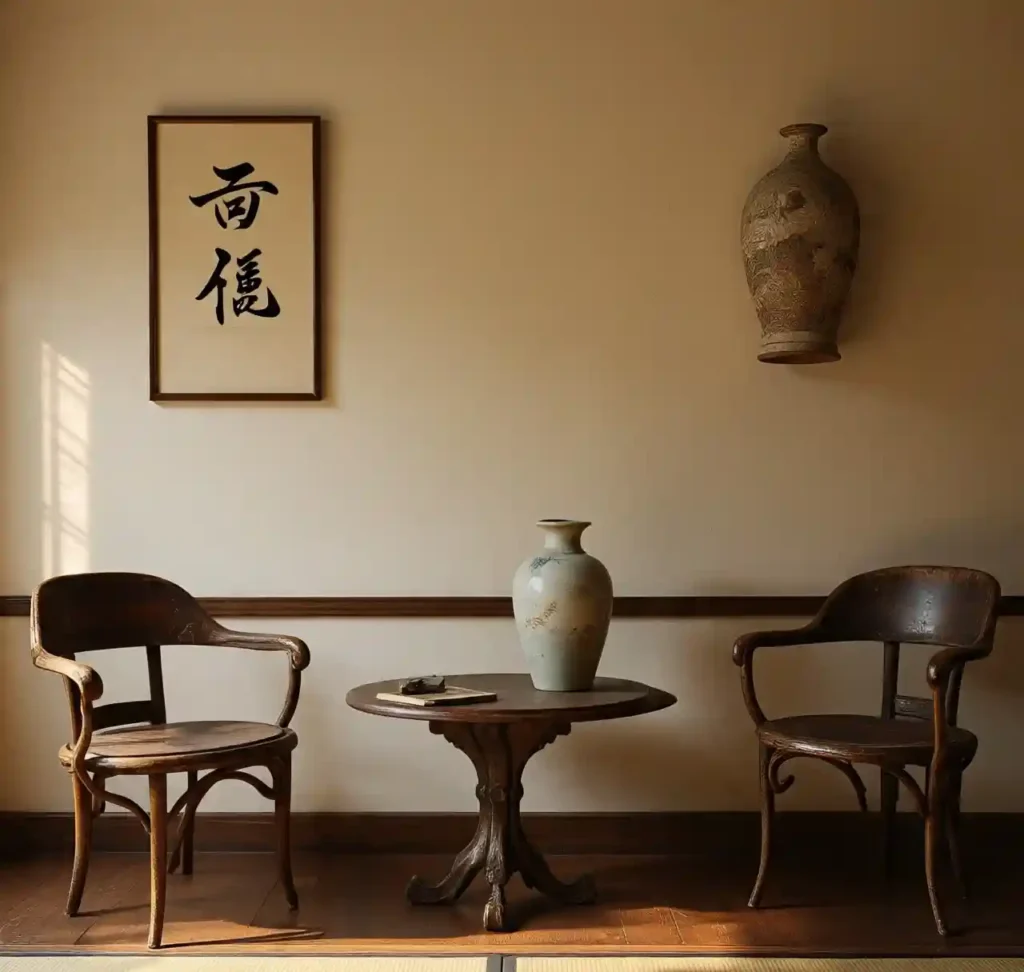
Final Thoughts: Wabi-Sabi Living Rooms Are About Feeling, Not Just Aesthetics
Wabi-sabi is more than a style—it’s a mindset. These 20 Wabi-sabi living room ideas encourage you to slow down, simplify, and find beauty in the ordinary. When you release the need for perfection and embrace the worn, the aged, and the soulful, your space becomes a sanctuary that feels profoundly human.

